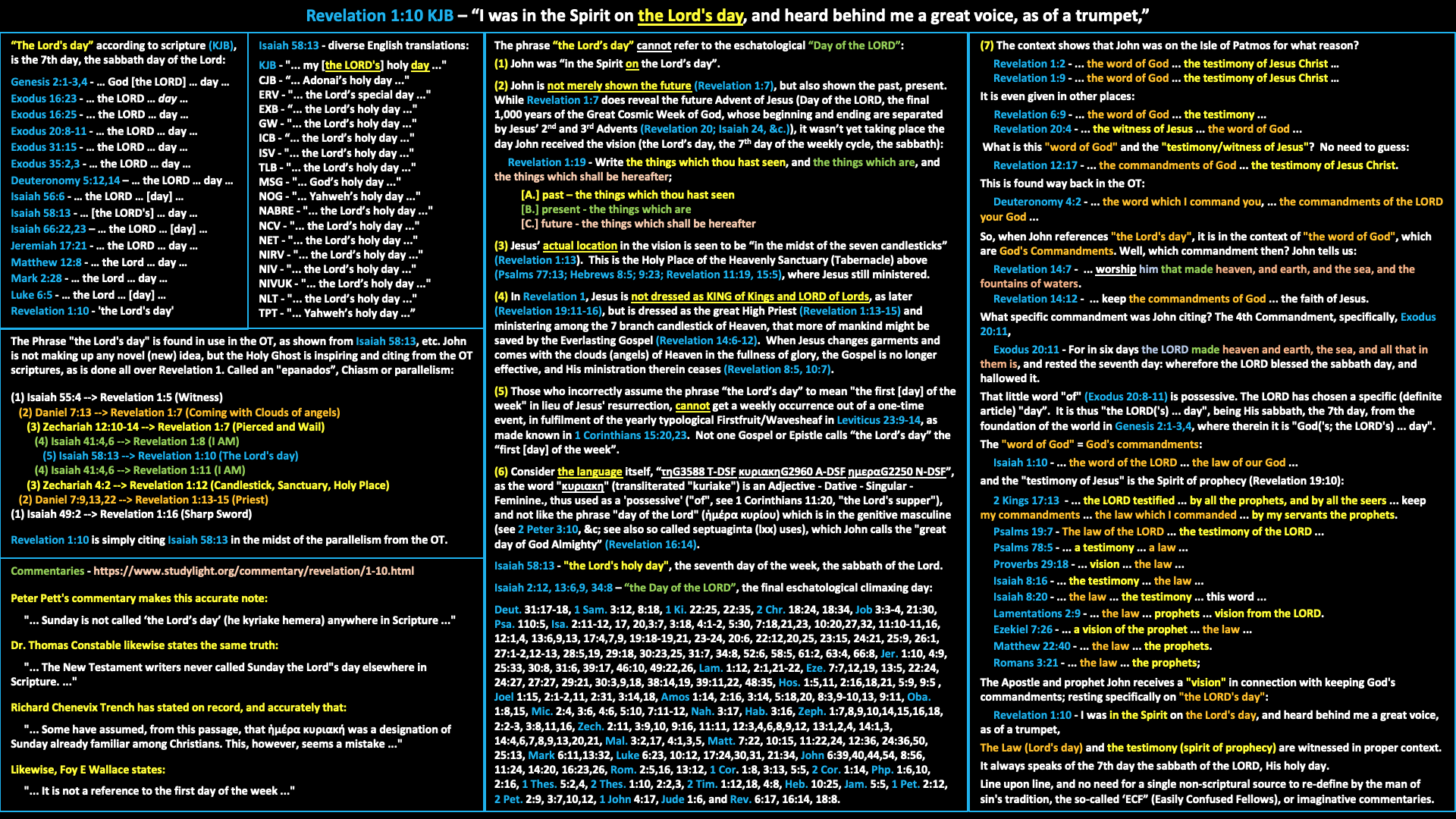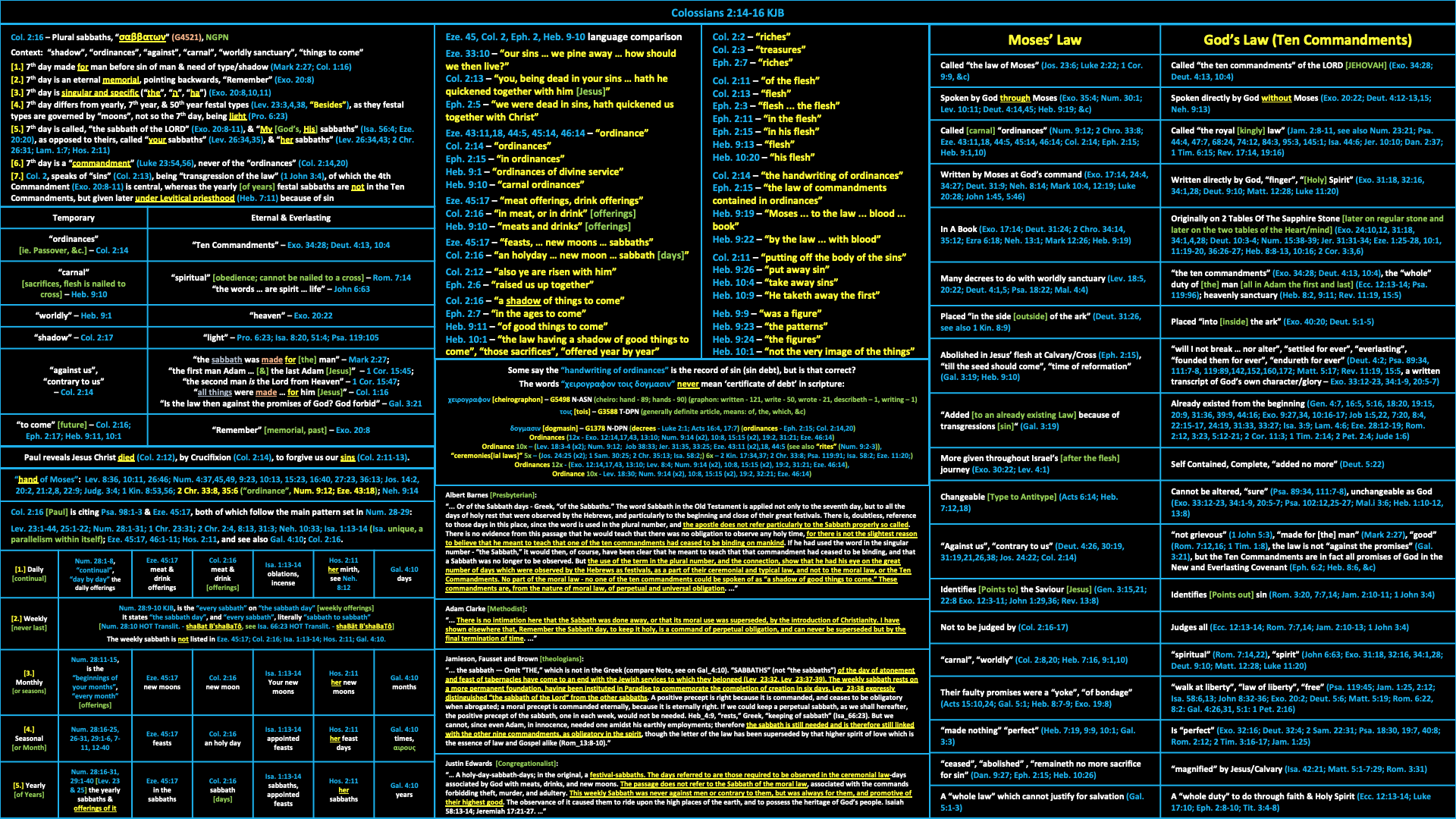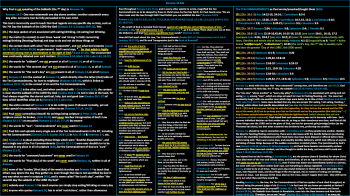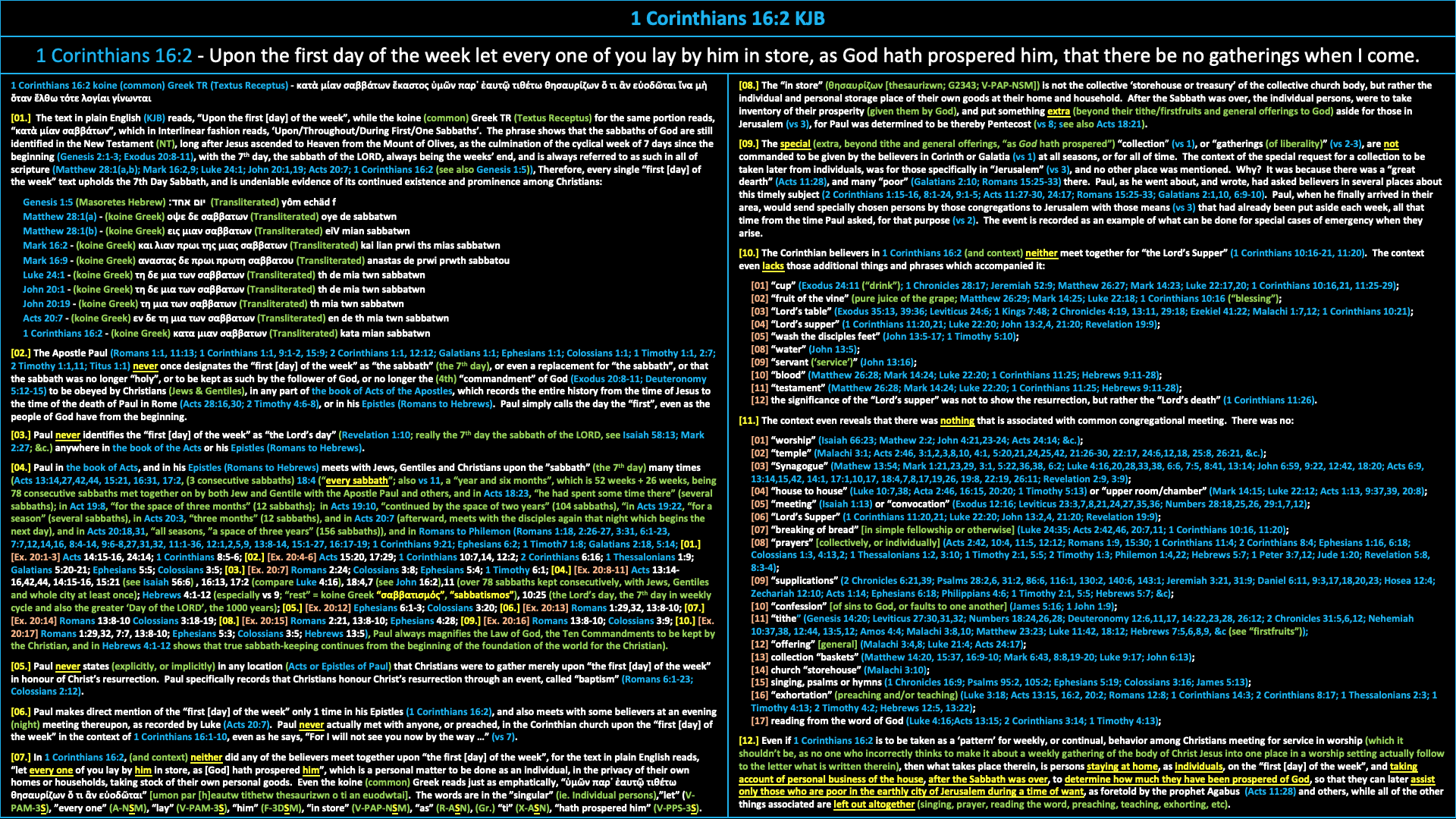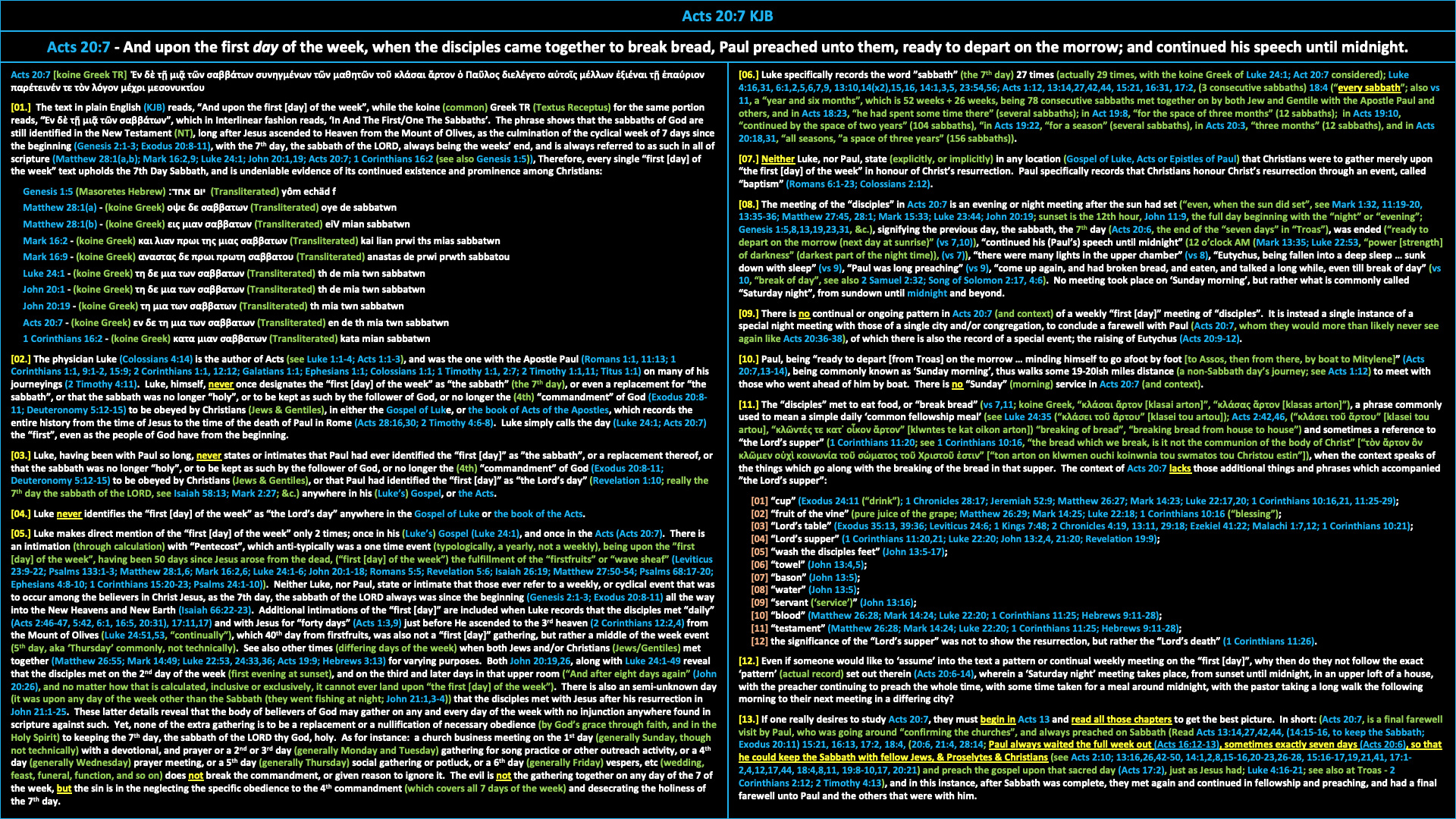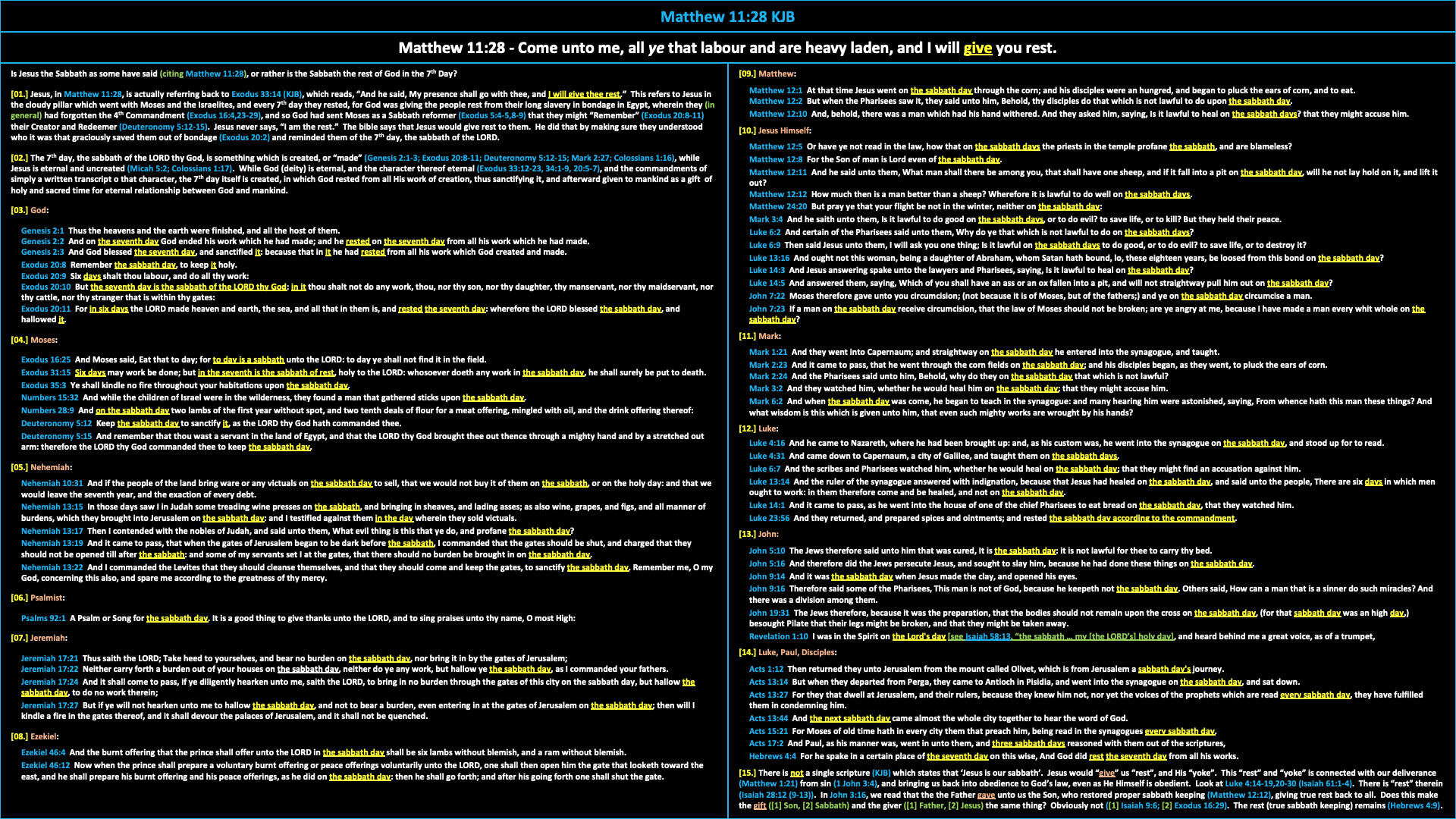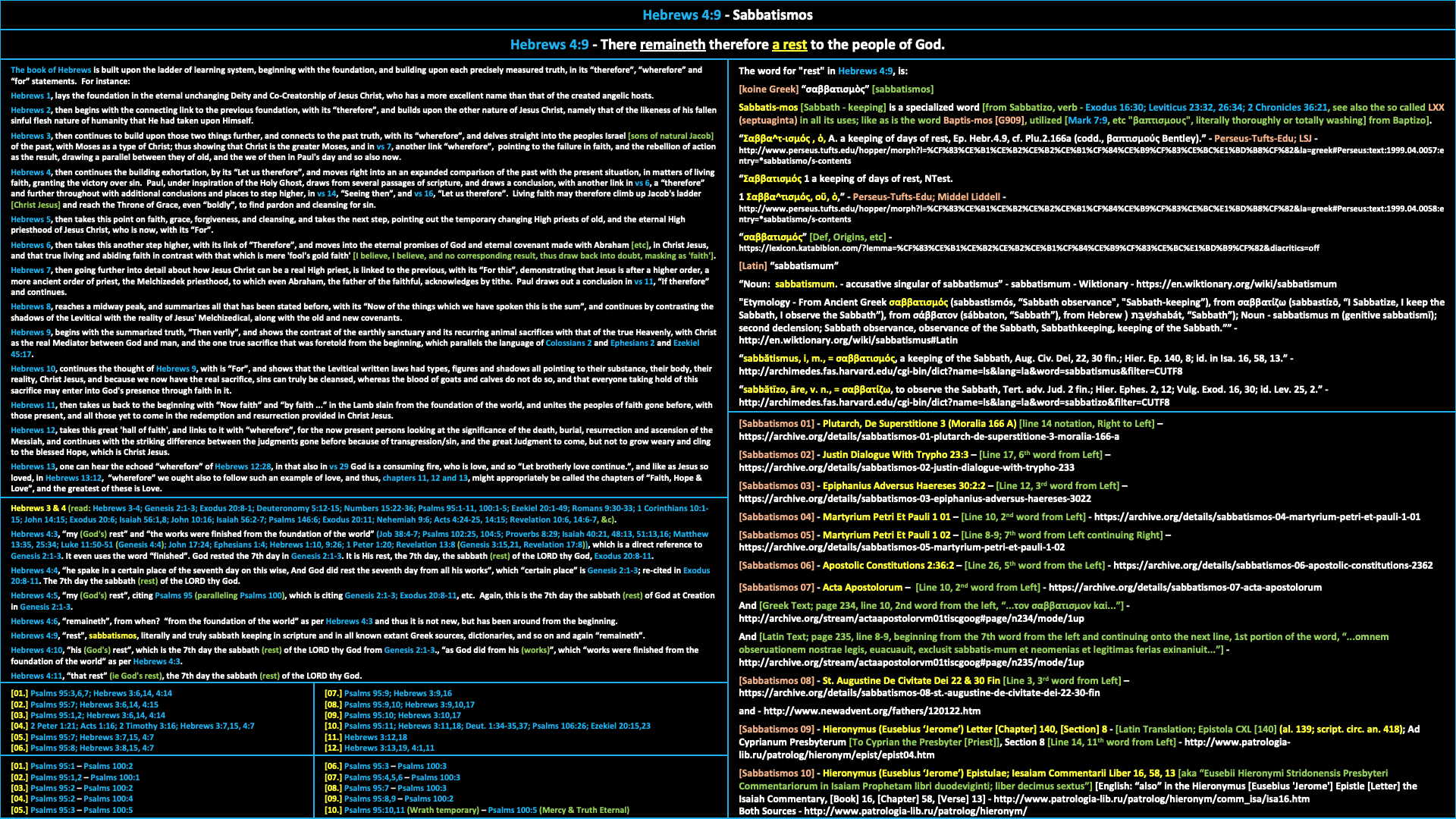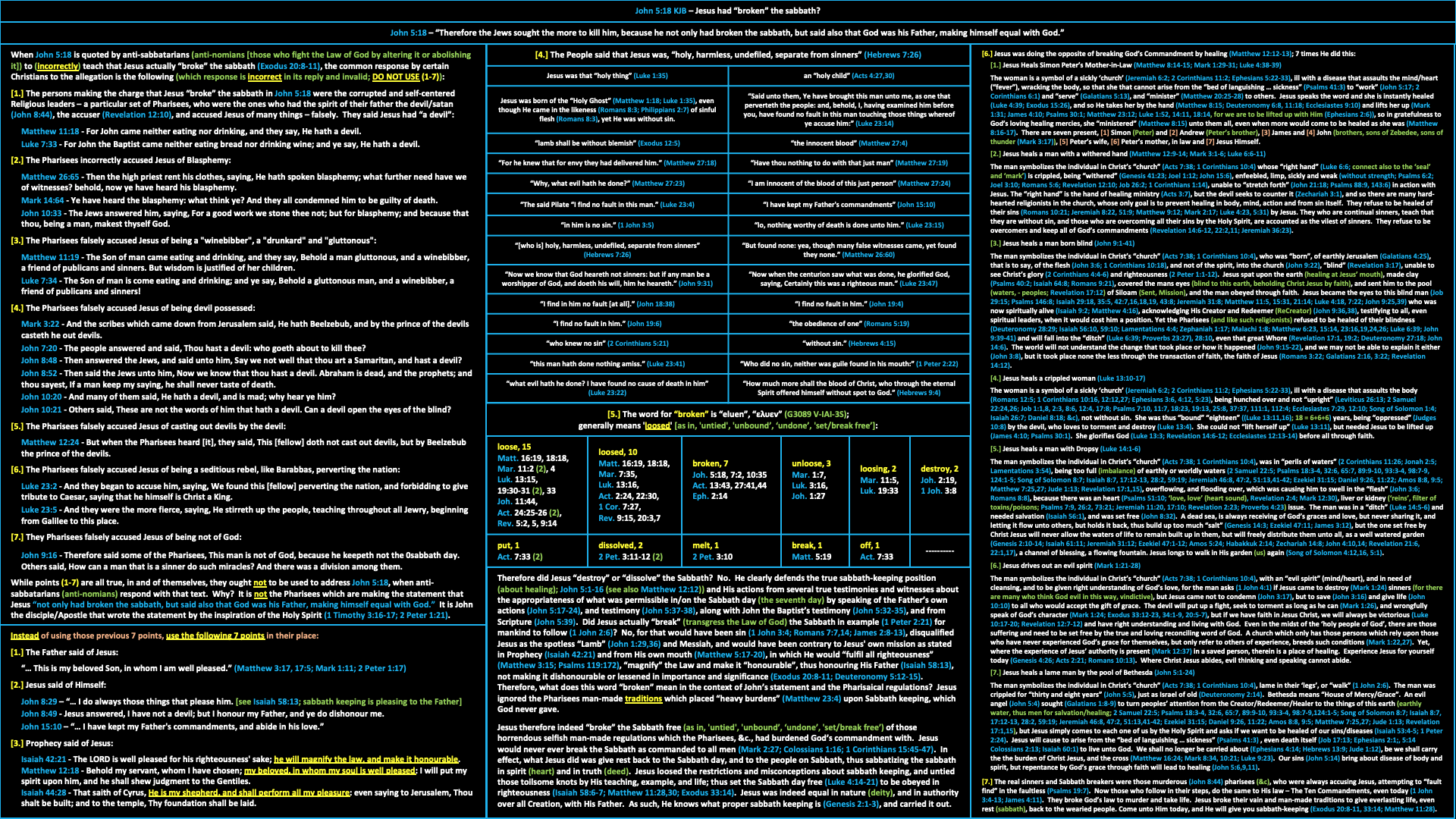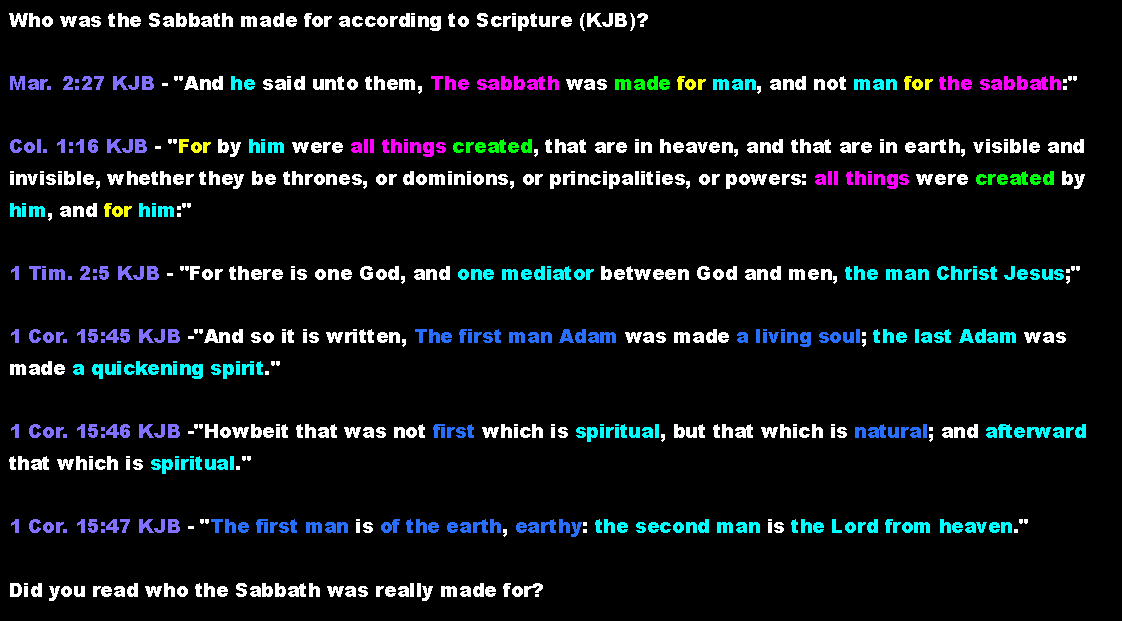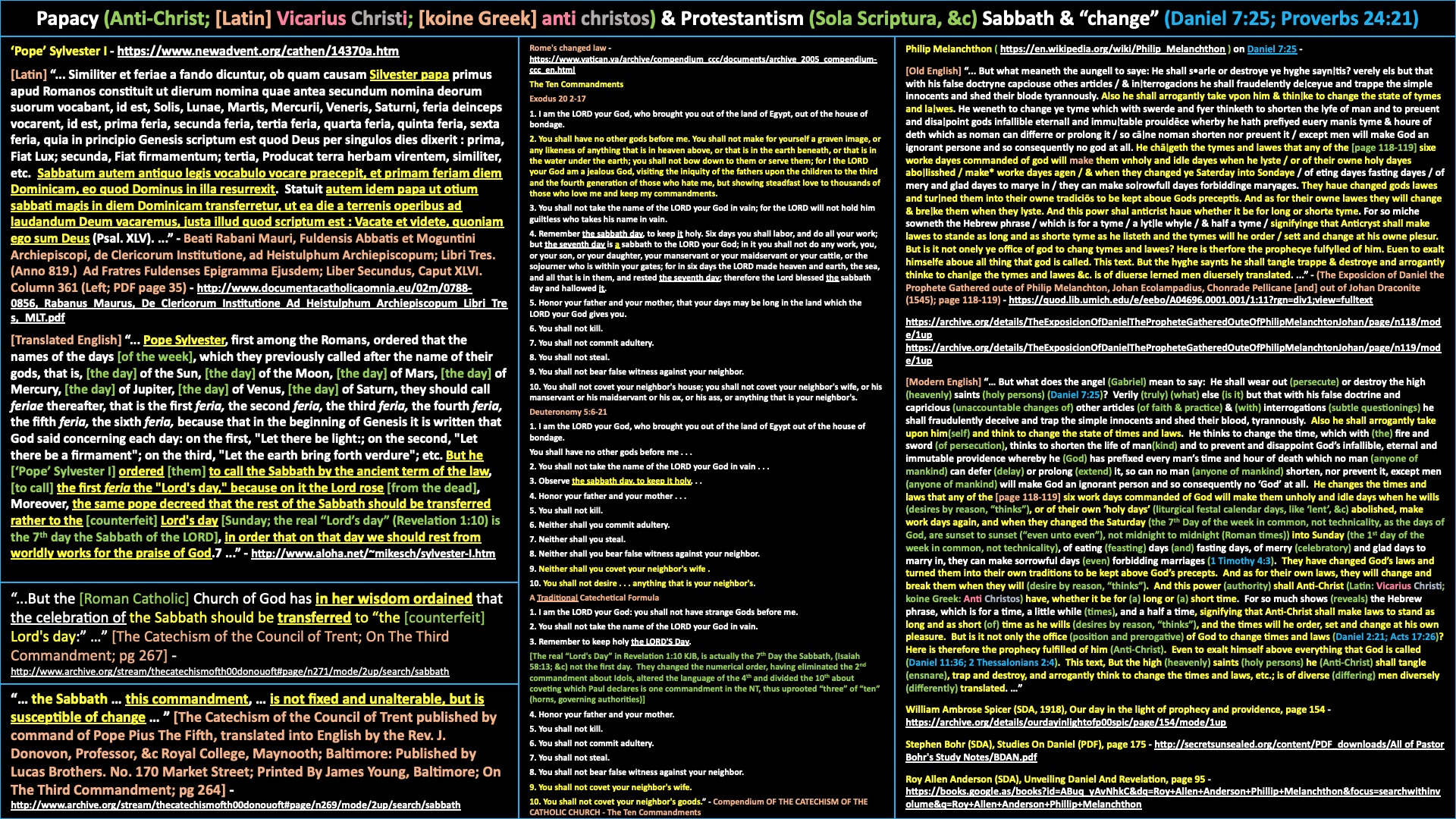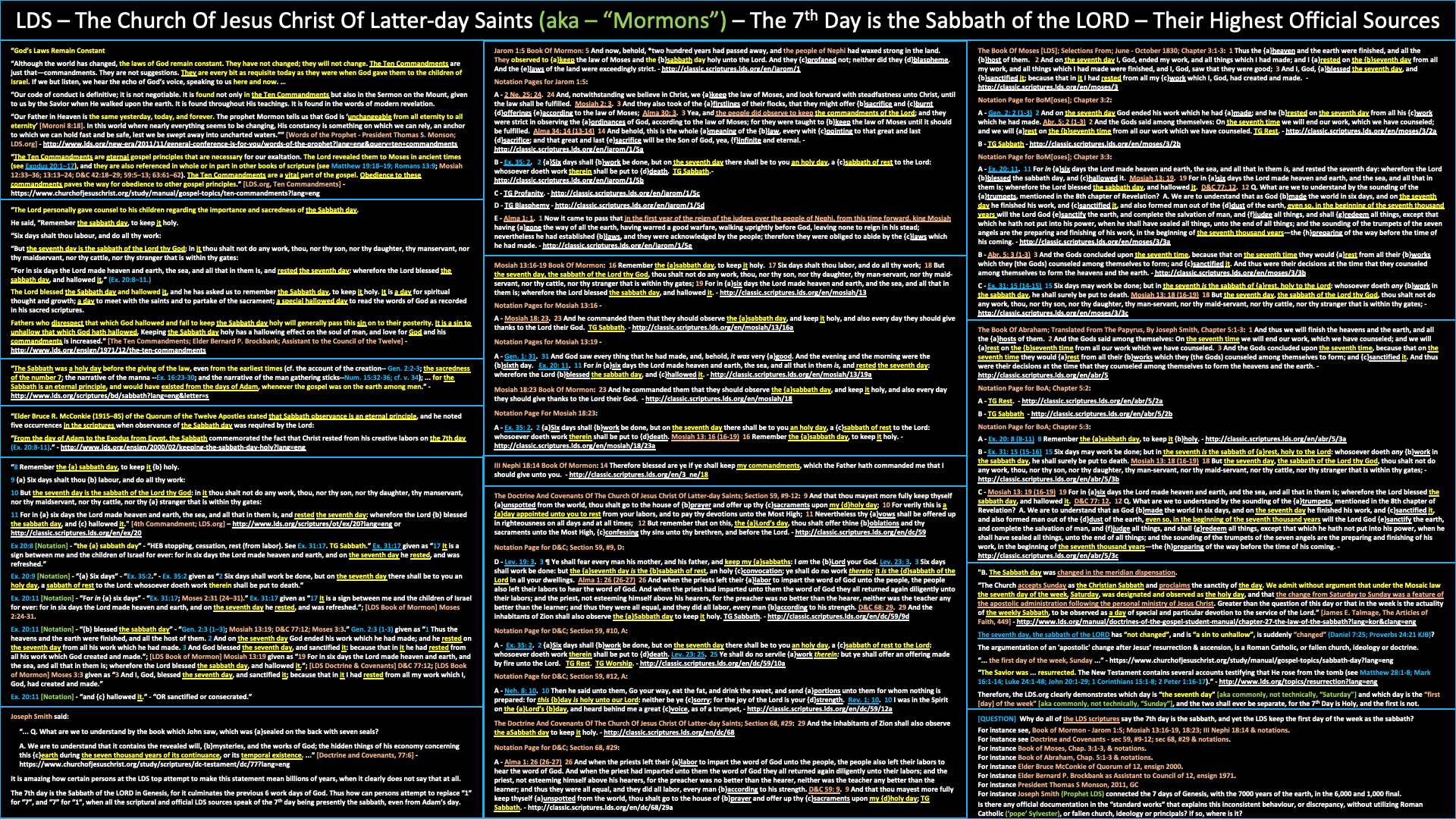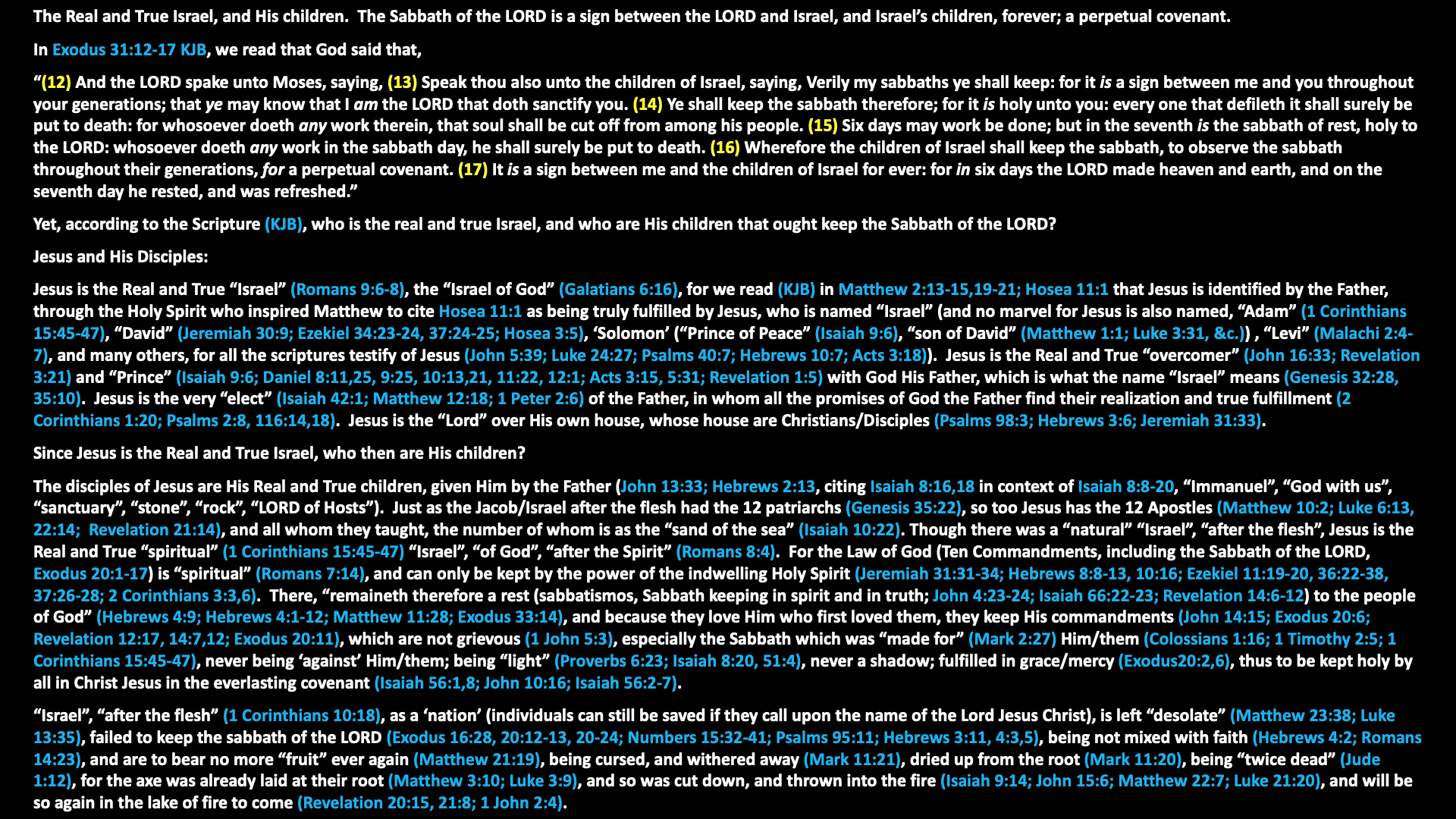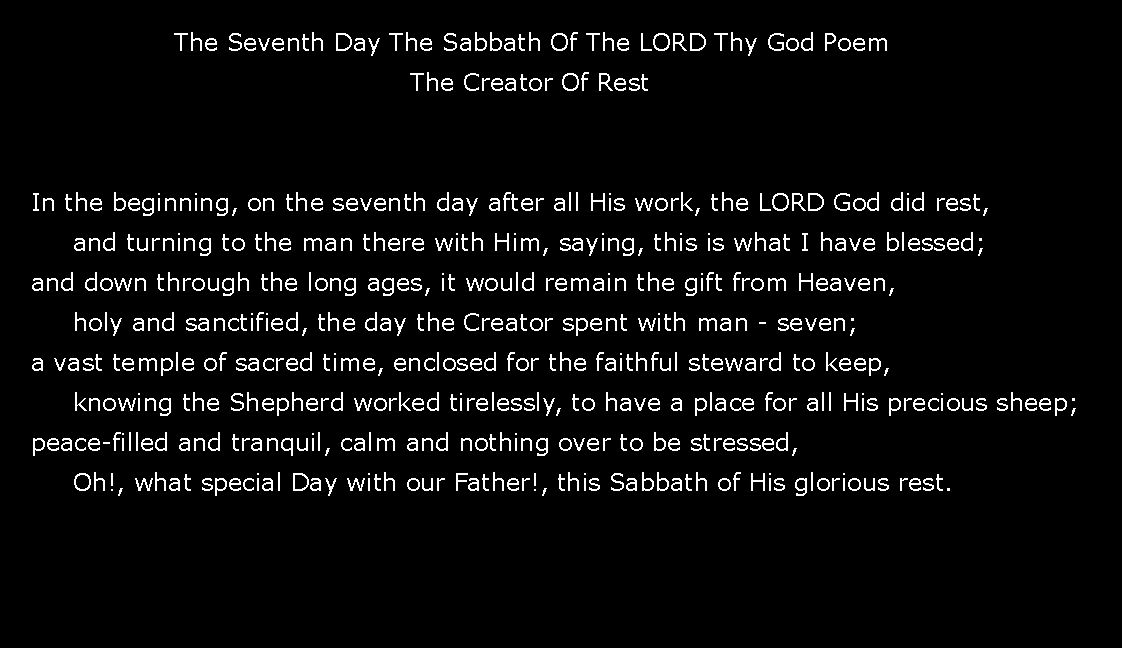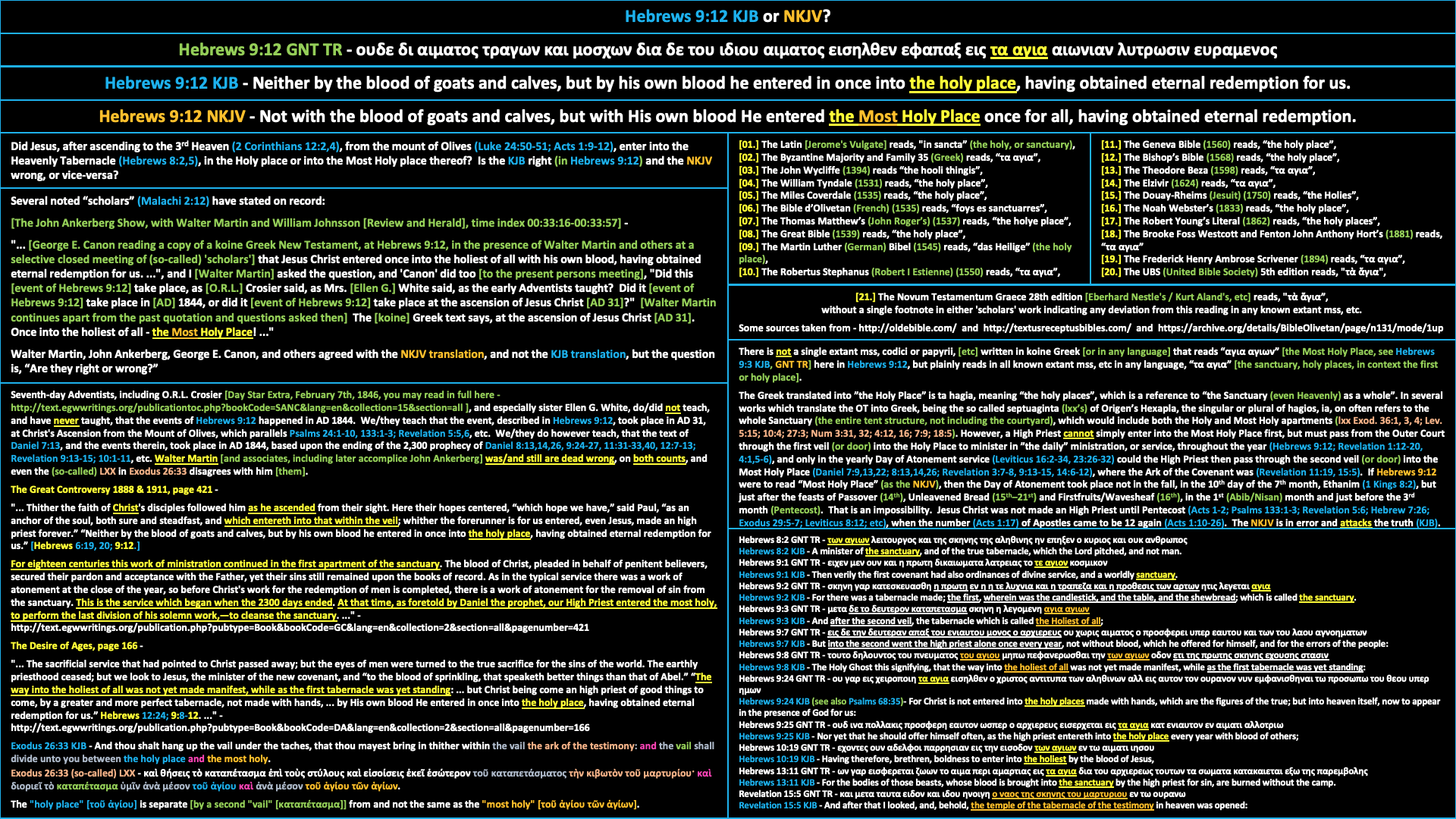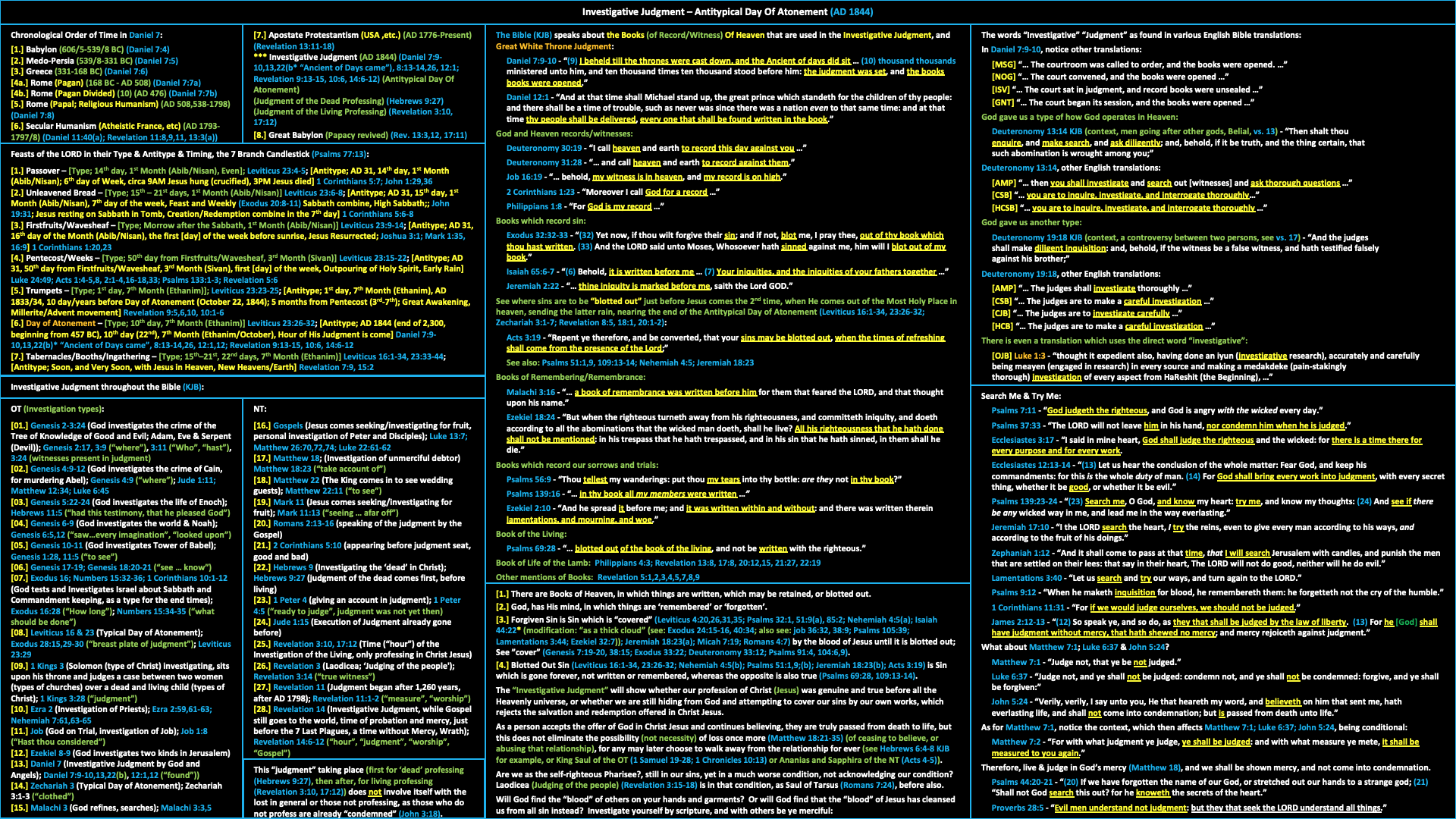(POLL - Multiple Choice allowed, change of choice allowed, and ongoing choice allowed; after voting, then present your evidences in thread response please)
The Lord's Day (Rev. 1:10) - Sabbath (7th) or Sunday (1st) or Eschatological day or something else? The Bible says:
Revelation 1:1 - The Revelation of Jesus Christ, which God gave unto him, to shew unto his servants things which must shortly come to pass; and he sent and signified it by his angel unto his servant John:
Revelation 1:2 - Who bare record of the word of God, and of the testimony of Jesus Christ, and of all things that he saw.
Revelation 1:3 - Blessed is he that readeth, and they that hear the words of this prophecy, and keep those things which are written therein: for the time is at hand.
Revelation 1:4 - John to the seven churches which are in Asia: Grace be unto you, and peace, from him which is, and which was, and which is to come; and from the seven Spirits which are before his throne;
Revelation 1:5 - And from Jesus Christ, who is the faithful witness, and the first begotten of the dead, and the prince of the kings of the earth. Unto him that loved us, and washed us from our sins in his own blood,
Revelation 1:6 - And hath made us kings and priests unto God and his Father; to him be glory and dominion for ever and ever. Amen.
Revelation 1:7 - Behold, he cometh with clouds; and every eye shall see him, and they also which pierced him: and all kindreds of the earth shall wail because of him. Even so, Amen.
Revelation 1:8 - I am Alpha and Omega, the beginning and the ending, saith the Lord, which is, and which was, and which is to come, the Almighty.
Revelation 1:9 - I John, who also am your brother, and companion in tribulation, and in the kingdom and patience of Jesus Christ, was in the isle that is called Patmos, for the word of God, and for the testimony of Jesus Christ.
Revelation 1:10 - I was in the Spirit on the Lord's day, and heard behind me a great voice, as of a trumpet,
The answer is in the context, as it always is (Isaiah 8:20, 28:10,13; John 10:35; 2 Peter 1:19-21; Genesis 40:8).
The Lord's Day (Rev. 1:10) - Sabbath (7th) or Sunday (1st) or Eschatological day or something else? The Bible says:
Revelation 1:1 - The Revelation of Jesus Christ, which God gave unto him, to shew unto his servants things which must shortly come to pass; and he sent and signified it by his angel unto his servant John:
Revelation 1:2 - Who bare record of the word of God, and of the testimony of Jesus Christ, and of all things that he saw.
Revelation 1:3 - Blessed is he that readeth, and they that hear the words of this prophecy, and keep those things which are written therein: for the time is at hand.
Revelation 1:4 - John to the seven churches which are in Asia: Grace be unto you, and peace, from him which is, and which was, and which is to come; and from the seven Spirits which are before his throne;
Revelation 1:5 - And from Jesus Christ, who is the faithful witness, and the first begotten of the dead, and the prince of the kings of the earth. Unto him that loved us, and washed us from our sins in his own blood,
Revelation 1:6 - And hath made us kings and priests unto God and his Father; to him be glory and dominion for ever and ever. Amen.
Revelation 1:7 - Behold, he cometh with clouds; and every eye shall see him, and they also which pierced him: and all kindreds of the earth shall wail because of him. Even so, Amen.
Revelation 1:8 - I am Alpha and Omega, the beginning and the ending, saith the Lord, which is, and which was, and which is to come, the Almighty.
Revelation 1:9 - I John, who also am your brother, and companion in tribulation, and in the kingdom and patience of Jesus Christ, was in the isle that is called Patmos, for the word of God, and for the testimony of Jesus Christ.
Revelation 1:10 - I was in the Spirit on the Lord's day, and heard behind me a great voice, as of a trumpet,
The answer is in the context, as it always is (Isaiah 8:20, 28:10,13; John 10:35; 2 Peter 1:19-21; Genesis 40:8).


